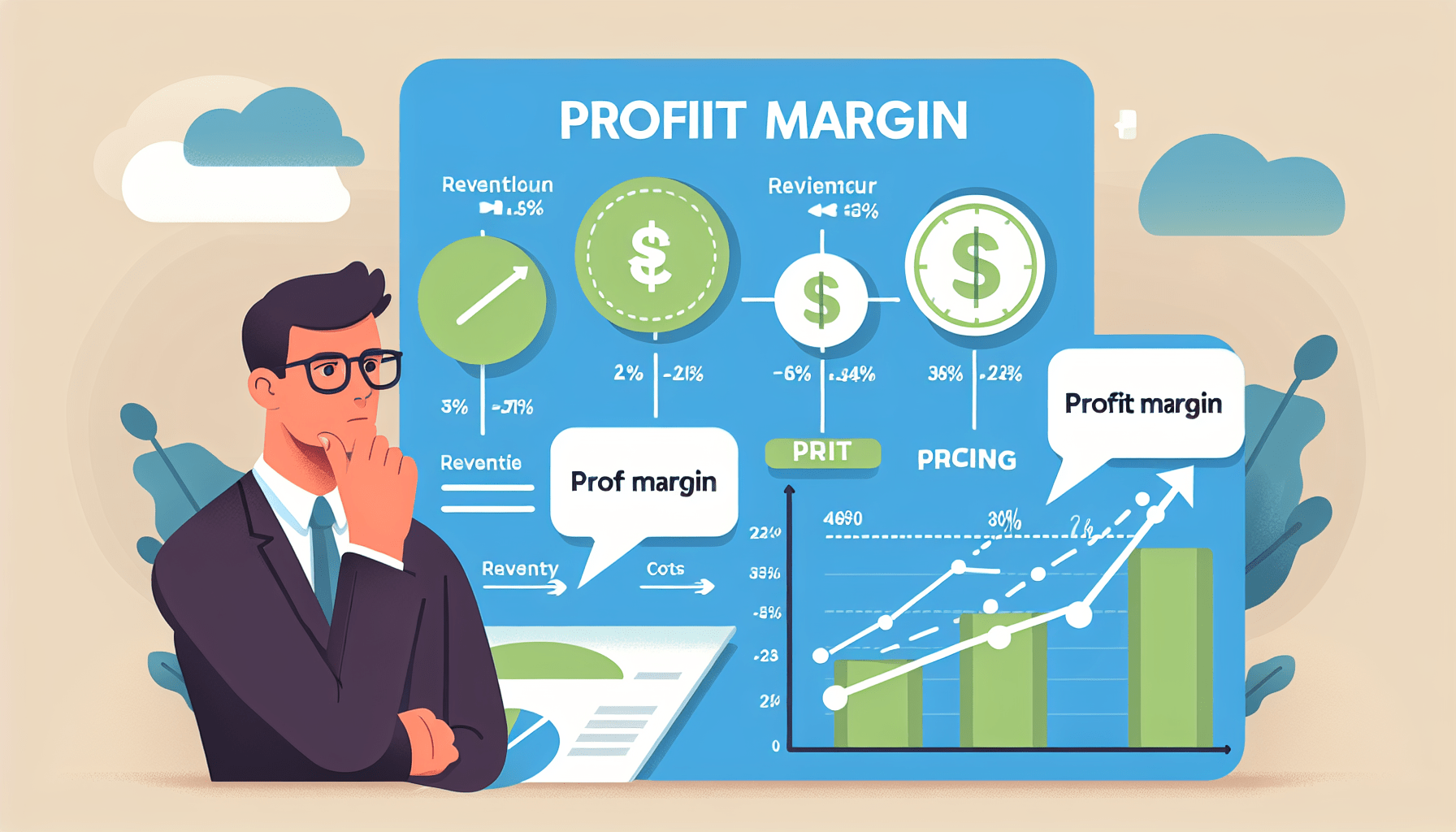What Business Can I Start To Make Money Fast?
Are you tired of the daily 9-to-5 grind? Do you find yourself longing for a business opportunity that not only allows you to earn a decent income, but also brings a sense of excitement and fulfillment? If so, you’ve come to the right place. In this article, we will explore various business ideas that have the potential to make you money quickly. Say goodbye to the traditional corporate world and say hello to the world of entrepreneurial possibilities. It’s time to embark on a journey towards financial success and personal satisfaction. Let’s discover the perfect business for you.

Online Freelancing
Benefits of online freelancing
Online freelancing offers numerous benefits for individuals looking to work independently and earn money on their own terms. Some of the key advantages include:
-
Flexibility and Freedom: As an online freelancer, you have the freedom to choose your schedule and work from anywhere with an internet connection. This flexibility allows you to achieve a better work-life balance and pursue other interests.
-
Ability to Work on Your Expertise: Online freelancing allows you to capitalize on your skills and expertise. Whether you’re a writer, graphic designer, programmer, or marketer, you can find freelancing opportunities in your field of expertise.
-
Diverse Range of Projects: Freelancing platforms offer a wide variety of projects and job opportunities. You can choose to work on projects that align with your interests and expand your skills by taking on new challenges.
-
Increased Income Potential: Many freelancers earn more than traditional employees due to the ability to take on multiple projects simultaneously and charge competitive rates for their services.
Popular freelancing platforms
When starting out as an online freelancer, it’s essential to find the right platform to showcase your skills and connect with potential clients. Some of the popular freelancing platforms include:
-
Upwork: Upwork is one of the largest freelancing platforms, offering a wide range of job categories and projects. It allows you to create a profile, showcase your skills, and bid on projects that interest you.
-
Fiverr: Fiverr focuses on offering freelance services at affordable prices. It has a user-friendly interface and allows you to create gigs highlighting your expertise and pricing.
-
Freelancer: Freelancer is a global freelancing platform that connects freelancers with clients worldwide. It offers a competitive bidding system, allowing you to showcase your skills and secure projects.
-
Toptal: Toptal is known for its exclusive network of top freelancers. This platform focuses on connecting freelancers with high-quality clients, making it ideal for experienced professionals.
In-demand skills for freelancing
To increase your chances of success as a freelancer, it’s crucial to possess in-demand skills that are in high demand. Some of the most sought-after skills in the freelancing market include:
-
Web Development and Design: With businesses increasingly moving online, web development and design skills are highly lucrative. Proficiency in HTML, CSS, JavaScript, and experience with platforms like WordPress or Shopify can open up a wide range of opportunities.
-
Content Writing and Copywriting: Quality content is crucial for businesses to engage their audience and rank well in search engines. Excellent writing skills and knowledge in SEO can help freelancers secure projects in content creation, blog writing, and social media management.
-
Graphic Design: Visual appeal is essential in capturing the attention of potential customers. Graphic design skills, including proficiency in Adobe Photoshop, Illustrator, and InDesign, are in high demand for creating captivating logos, posters, social media graphics, and other visual assets.
-
Digital Marketing and SEO: As businesses strive to improve their online presence, freelancers with expertise in digital marketing, including search engine optimization (SEO), social media management, and pay-per-click advertising, are in high demand.
How to get started as a freelancer
Getting started as a freelancer can be overwhelming, but with the right approach, you can establish a successful freelancing career. Here are some steps to get started:
-
Identify Your Niche: Determine your area of expertise and focus on a specific niche. By specializing, you can distinguish yourself from the competition and target clients who require your particular skills.
-
Build an Impressive Portfolio: Create a portfolio that showcases your best work and demonstrates your skills to potential clients. Include relevant samples, testimonials, and case studies to highlight your capabilities.
-
Create a Professional Profile: On freelancing platforms, create a professional profile that highlights your skills, experience, and qualifications. Customize your profile to attract the attention of potential clients.
-
Start Bidding and Networking: Begin bidding on projects that align with your skills and interests. Network with other freelancers and clients in your industry to expand your opportunities.
-
Deliver High-Quality Work: Once you secure a project, provide exceptional service and deliver high-quality work within the agreed-upon timeline. Satisfied clients are more likely to provide positive reviews and refer you to others.
-
Continuously Learn and Adapt: Freelancing is a dynamic field, and staying updated with industry trends and developments is crucial to stay competitive. Invest time in enhancing your skills through online courses, workshops, and professional development opportunities.
By following these steps and consistently delivering outstanding work, you can establish yourself as a successful freelancer and achieve financial independence.
Ecommerce
Why start an ecommerce business?
Starting an ecommerce business offers numerous advantages and has become increasingly popular in recent years. Here are some compelling reasons to consider starting an ecommerce business:
-
Low Startup Costs: Compared to traditional brick-and-mortar stores, starting an ecommerce business requires significantly lower initial investment. You can avoid costs associated with physical storefronts, inventory, and staffing.
-
Global Reach: Ecommerce allows you to reach customers from all over the world. With a well-designed online store and effective marketing strategies, you can tap into a global customer base and increase potential sales.
-
Flexibility and Convenience: Ecommerce businesses offer unparalleled flexibility, allowing you to work from anywhere at any time. It eliminates the need for a physical presence, giving you the freedom to manage and run your business on your own terms.
-
Scalability: Online stores have the advantage of scaling rapidly. As your business grows, you can easily expand your product offerings, handle increased traffic, and accommodate a growing customer base.
Choosing the right product or niche
Choosing the right product or niche is a crucial step in setting up a successful ecommerce business. Here are some factors to consider when making this decision:
-
Passion and Expertise: Select a product or niche that aligns with your interests and expertise. Having a genuine passion for what you’re selling will make it easier to connect with customers and provide exceptional customer service.
-
Market Demand: Research the market to identify products or niches with high demand. Look for gaps in the market or untapped customer needs that you can fulfill with your offerings.
-
Competitive Analysis: Analyze the competition in your chosen product or niche. Identify their strengths and weaknesses, pricing strategies, and customer reviews. Differentiate yourself by offering unique value propositions or improving upon existing products.
-
Profitability: Evaluate the potential profitability of your chosen product or niche. Consider factors such as production costs, profit margins, and the ability to upsell or cross-sell related products.
Setting up an online store
Once you’ve decided on your product or niche, it’s time to set up your online store. Follow these steps to get started:
-
Choose an Ecommerce Platform: Select an ecommerce platform that suits your needs. Popular options include Shopify, WooCommerce, and BigCommerce. Consider factors such as ease of use, customization options, and available features.
-
Design Your Store: Customize the look and feel of your online store to align with your brand. Use attractive visuals, clear navigation, and compelling product descriptions to engage potential customers.
-
Product Listing and Inventory Management: Add your products to the online store and optimize product listings for search engines. Implement effective inventory management practices to ensure accurate tracking and timely fulfillment.
-
Secure Payment Gateway: Integrate a secure and reliable payment gateway to facilitate smooth transactions. Offer multiple payment options to cater to customer preferences.
-
Shipping and Fulfillment: Set up shipping options and determine shipping rates based on factors like weight, distance, and customer location. Consider working with shipping partners or utilizing dropshipping services for a streamlined fulfillment process.
-
Website Optimization: Optimize your website for search engines to improve visibility and drive organic traffic. Implement on-page SEO techniques, optimize page load speed, and ensure mobile responsiveness.
Marketing and promoting your ecommerce business
Effective marketing and promotion are essential to drive traffic and generate sales for your ecommerce business. Here are some strategies to consider:
-
Social Media Marketing: Utilize popular social media platforms like Facebook, Instagram, and Pinterest to create engaging content and reach a broader audience. Run targeted ads and collaborate with influencers to increase brand visibility.
-
Search Engine Optimization (SEO): Implement SEO strategies to improve your online store’s visibility on search engine result pages. Optimize product descriptions, website content, and meta tags to rank higher in search results.
-
Email Marketing: Build an email list and send regular newsletters to engage customers and drive repeat sales. Offer exclusive discounts, personalized recommendations, and valuable content to nurture customer relationships.
-
Content Marketing: Create informative and engaging blog posts, videos, and infographics related to your business niche. Share this content on your website and social media channels to establish yourself as a thought leader and attract potential customers.
-
Paid Advertising: Consider running paid advertising campaigns on platforms like Google Ads or social media platforms to increase your brand’s visibility and reach a wider audience.
-
Customer Reviews and Referrals: Encourage satisfied customers to leave reviews and testimonials on your website or popular review platforms. Offer incentives for referrals to encourage customers to spread the word about your products.
By implementing these marketing strategies and continuously monitoring and analyzing your efforts, you can effectively promote your ecommerce business and maximize its potential for success.

Dropshipping
Understanding dropshipping
Dropshipping is an ecommerce fulfillment model where the seller does not keep the products in stock. Instead, when a customer places an order, the seller purchases the products from a third-party supplier who then fulfills the order on behalf of the seller. Here are some key points to understand about dropshipping:
-
No Inventory Management: Dropshipping eliminates the need for upfront inventory investment and the hassle of managing stock. You only pay for the products you sell, reducing the risk of unsold inventory.
-
Low Startup Costs: Dropshipping allows you to start an ecommerce business with minimal upfront investment. You don’t need to purchase inventory or handle shipping logistics, making it an attractive option for entrepreneurs with limited capital.
-
Wide Product Selection: With dropshipping, you have access to a wide range of products offered by various suppliers. This enables you to offer a diverse product catalog without the need to stock or manage inventory.
Finding reliable suppliers
Finding reliable suppliers is crucial for a successful dropshipping business. Here are some strategies to find reputable suppliers:
-
Research and Due Diligence: Conduct thorough research online, read reviews, and join industry communities to identify suppliers with a good reputation. Look for suppliers with prompt communication, quality products, and efficient shipping methods.
-
Trade Shows and Exhibitions: Attend trade shows and exhibitions in your industry to meet suppliers face-to-face and assess their product quality, range, and reliability. Establishing personal relationships with suppliers can lead to better pricing and service.
-
Direct Communication: Contact potential suppliers directly to discuss their products, pricing, and shipping policies. Ask for samples to assess the product quality before committing to a partnership.
-
Supplier Directories: Utilize supplier directories such as Oberlo, AliExpress, or SaleHoo to discover reputable suppliers in your niche. These directories provide information about suppliers, including customer reviews and ratings.
Building an online store for dropshipping
Once you have identified reliable suppliers, it’s time to set up an online store for your dropshipping business. Follow these steps to get started:
-
Select an Ecommerce Platform: Choose an ecommerce platform that supports dropshipping. Platforms like Shopify, WooCommerce, or BigCommerce offer dropshipping integrations and features to streamline the process.
-
Import Products: Connect your online store to your chosen suppliers or utilize dropshipping plugins to import products into your store. Ensure that product descriptions, images, and prices are accurately displayed.
-
Customize Your Store: Design your online store to reflect your brand and provide a seamless shopping experience. Optimize product pages with compelling descriptions, attractive visuals, and clear calls to action.
-
Set Pricing: Determine your pricing strategy by considering factors like product cost, shipping fees, and market competition. Make sure your prices allow for a reasonable profit margin while remaining competitive.
-
Establish Shipping Methods: Define shipping methods and rates based on your suppliers’ shipping options and policies. Communicate clearly with customers about estimated shipping times and tracking information.
Promoting your dropshipping business
To drive traffic and generate sales for your dropshipping business, you need an effective marketing strategy. Here are some key approaches:
-
Search Engine Optimization (SEO): Optimize your online store for search engines by conducting keyword research, optimizing product descriptions, and improving website performance. This will help your store rank higher in search results.
-
Social Media Marketing: Utilize social media platforms to create brand awareness, engage with potential customers, and promote your products. Run targeted ads, collaborate with influencers, and share engaging content.
-
Influencer Marketing: Partner with influencers related to your niche to promote your products to their followers. Influencers can provide product reviews, create content featuring your products, and recommend your store to their audience.
-
Email Marketing: Build an email list and send regular newsletters to promote new products, offer exclusive discounts, and encourage repeat purchases. Use automation tools to personalize emails and nurture customer relationships.
-
Content Marketing: Create valuable and informative content, such as blog posts, videos, or tutorials, that aligns with your niche. Share this content on your website and social media channels to attract potential customers.
-
Customer Reviews and Referrals: Encourage customers to leave reviews and testimonials about their experience with your products and your store. Offer incentives for referrals to encourage existing customers to spread the word.
By implementing these marketing strategies and consistently monitoring and optimizing your efforts, you can effectively promote your dropshipping business and attract a steady stream of customers.



